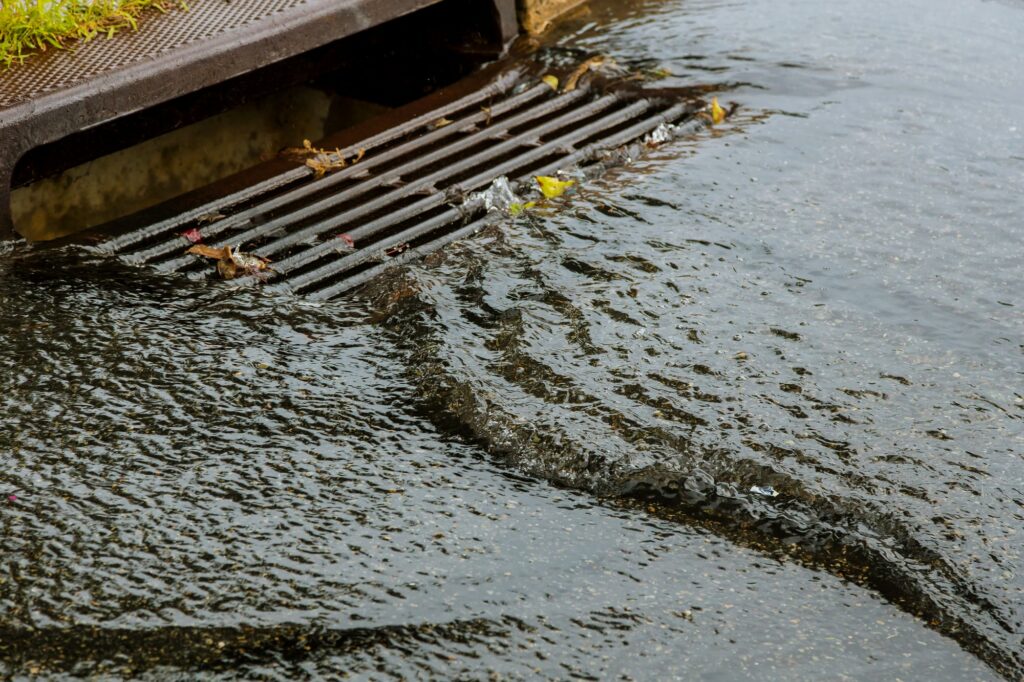Spring has almost sprung and while April showers may bring May flowers they can also bring complications to your asphalt parking lot if you aren’t properly prepared.
There is a reason why our team at Sealcoating 2.0 recommends preventative maintenance when it comes to your asphalt surfaces. When these preventative measures protect your pavement, these spring showers shouldn’t cause you any problems. However, if you have failed to complete general maintenance, small cracks, potholes, and depressions can appear and ones that are already present could worsen and cause some serious damage.
How Does Rain Effect Your Asphalt Parking Lot?
To put it simply, water weakens the bond between your asphalt binder causing it to aggregate, or a material or structure that is formed from a loosely compacted mass of fragments or particles. When your asphalt surfaces have cracks it becomes extremely vulnerable to the elements, especially to water. With enough time water can slowly erode your unprotected asphalt parking lot, and weakening the supportive and vital structural layers of your pavement.
Virginia is known for experiencing all four seasons in a week which is ultimately not good for your parking lot. Standing water, which is very prevalent during the spring season, will go through the freeze and thaw cycle repeatedly. This works to shrink and expand water molecules, something that causes stripping which is the process of debunking the aggregate and binder. When the bond between the aggregate and the binder begins to deteriorate it weakens your asphalt parking lot which makes it more vulnerable to damage in the future. Once the water gets under the sub-base of your pavement it can even compromise the structural integrity of the pavement over time.
When this occurs and cracks are left untreated these small cracks will only start to become bigger and cause even more damage. Then before you know it, your asphalt parking lot will be filled with alligator cracks (cracks that resemble the scales on a reptile’s back or the cracking you’d see if you dropped a hard-boiled egg) leaving you with an unsafe and ultimately unappealing surface.
How do Your Prevent This Damage to Your Asphalt Parking Lot?
There are a few things that you can do to protect your asphalt surfaces from potential damage, some of which include:

Sealcoating
A great way to protect your asphalt surfaces from damage and water penetration is with sealcoating. This process adds a thin liquid over your paved surface to help protect it from damage that can be caused by UV rays, snow, fluids from vehicles, and rain. Sealcoating services are a great way to prevent cracks from forming in the first place and extends the life of your pavement. Our team recommends that you get a sealcoating application once every 3-5 years to protect your asphalt parking lot.
Pavement Maintenance
Standing water and rainfall can’t exploit weaknesses in your pavement if there aren’t any, to begin with! Smaller cracks are easier and much more inexpensive to manage and repair than larger cracks. This is why it is best to get the cracks in your asphalt taken care of right away.
Some things that you can do on your own before having a professional sealcoating team come out include,
- Cleaning the surface of your asphalt parking lot to remove any gravel, rocks, glass, and other debris
- Walk the surface of your parking lot to look for any changes throughout the surfaces
- Look for any visible winter damage which might include, dents and scrapes from snowplow, potholes, heaving, oil stains, cracks that are larger than 1/4 of an inch, and faded paint
After you inspect your parking lot for any potential damages you then want to pay attention the aesthetics of your asphalt and answer these following questions:
- Are there any locations of visible standing water in your parking lot?
- Is there water pooled up near the edges of the pavement?
- Is there damage to the landscape around the perimeter of your asphalt parking lot?
- Are your pavement stripes visible against the pavement?
- Are there parking lot signs in good condition and legible?
- Is your asphalt level? Are there any areas where it is not level?
Paying attention to these signs and asking yourself these questions will help you keep your parking lot in the best condition for you and your customers while also helping you avoid costly repairs.
Not only are cracks important to look out for but like we mentioned above so is standing or pooling water because these puddles may be a result of surface depressions that are formed by sections of your pavement that is settling lower than the rest of the pavement. This means that a section of your pavement may have sub-base troubles which can be extremely dangerous.

Drainage
During the asphalt parking lot installation process planning for proper water drainage is very important. When constructing parking lots and driveways our team takes the time to make the most out of grassy areas and inlets where water can be directed using slopes and asphalt curbing.
- Asphalt Paving Slope- Having the proper slope planning during asphalt installation is essential in regard to drainage. The proper slope angle will produce guide water directly to the drainage system.
- Asphalt Curbing- This process is vital to directing stormwater into the sewer drain system. It takes into consideration the aesthetics of your parking lot meaning it must be properly planned to make the most out of grassy areas and inlets where water can be directed during extended and heavy rains.
Porous pavement allows water from rain or snow to drain through the asphalt parking lot surface into the stone recharge bed and then filter back into the soil and groundwater below.
The Next Steps For Your Asphalt Parking Lot
When it comes to your parking lot, regular maintenance will help keep it in tip top shape and safe for you and the people who park within the lot. If you are looking for asphalt parking lot paving services or repair give our team at Sealcoating 2.0 a call, we would love to help!
